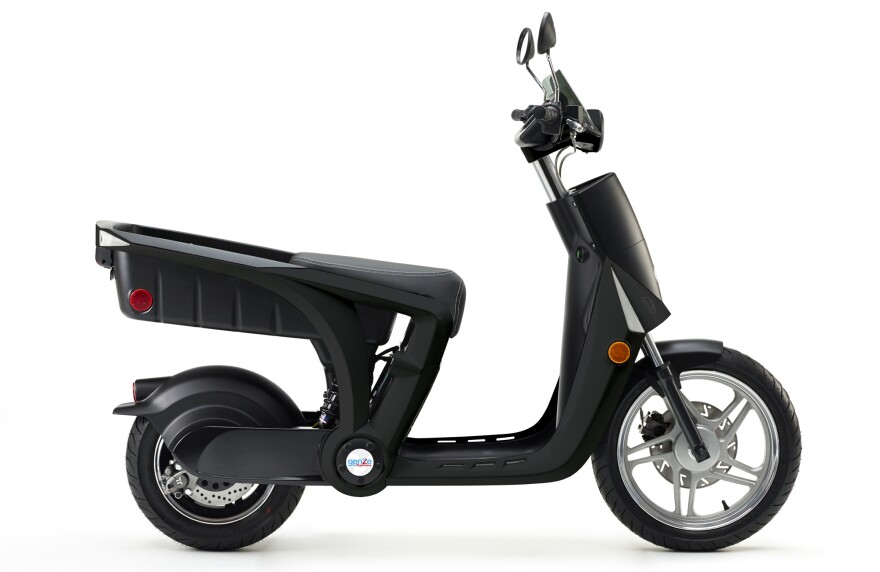Indian manufacturing company Mahindra is well-known in its native country, but it wants to be a household name in the U.S., too. So it has started its expansion into this country — with an electric scooter that dreams of being a tiny pickup truck.
It's called the GenZe because it generates zero emissions and because many of its customers will likely be the young people in Generation Z.
Terence Duncan, who designed the scooter being assembled in Ann Arbor, Mich., argues that the GenZe, which costs $3,000, just might make owning a car unnecessary for many city residents, especially college students. With a 30 mph top speed, it's just for city streets. It has a 30-mile range. You can lift the battery out and take it into a coffee shop to recharge.
The cargo space in the back is big enough to haul groceries, which is why Mahindra calls this a "pickup scooter."

"We built the entire architecture of this bike around this pickup truck bed back here. You can put a cooler back here. You can put your laundry, you can put a couple grocery bags, you can go to the farmers market," Duncan says.
Mahindra Chief Operating Officer Deven Kataria acknowledges U.S. consumer demand for scooters isn't even close to demand overseas. "Our growth really comes from expanding the market," he says. "If we can change the way people perceive these sorts of products, [that] is when we really start to win in this marketplace."
Kataria says scooters aren't the only things Mahindra has going on here. The company sells its small tractors, mainly to hobby farmers. Tech Mahindra, an IT company, employs 7,000 people in the U.S. Mahindra also has about 100 engineers in Troy, Mich., developing vehicles for India and the U.S.
The company hopes better name recognition might encourage Americans to buy Mahindra cars one day; they are not yet sold here.

Analyst Rebecca Lindland of Kelley Blue Book says the company has little choice but to push into new markets, in part, because every major automaker in the world is courting Indian consumers.
"Domestic brands like Mahindra are facing competition, which they have not faced before," she says.
Lindland says Mahindra's strategy banks on a rapid migration of young people into cities all over the world. In the U.S., she says, "we've got over 75 to 80 million people that are basically under the age of 35, and their choices, the way that they live, is really different than the way other people have lived before."
Mahindra hopes to eventually set up stores in every state and export GenZes from the U.S. to markets like Europe.
Copyright 2015 Michigan Radio






